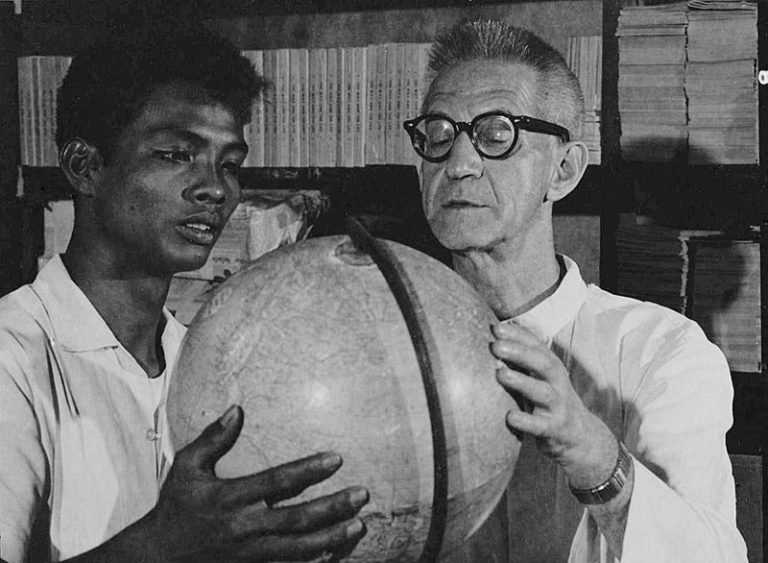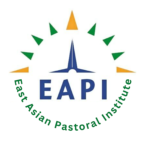OUR STORY
TRAINING MISSIONARIES FROM ALL OVER THE WORLD SINCE 1961
East Asian Pastoral Institute traces its beginning back to the year 1949 when the Jesuit missionaries were expelled from mainland China and had to find a new home for themselves and the seminarians. They found refuge in Manila, Philippines, in the quonset huts of an abandoned army camp in a deserted area of Mandaluyong.
Here they started to learn the Chinese language, hoping that they would soon return to the China mission. This did not happen; so in 1953, Fr. Joannes B. Hofinger SJ, an Austrian missiologist, opened the Institute for Missionary Apologetics. As early as then, he strongly recommended that missionaries should have thorough liturgical renewal while at the same time develop an awareness of the church’s catechetical or religious education. So by September 1961, when the name changed to East Asian Pastoral Institute, the resident team of Jesuits was already training missionaries from all over the world in the areas of liturgical and catechetical updating and conducting workshops on the missionary aspects of the Church.
In 1965, the Jesuit Superior General Fr. Pedro Arrupe SJ reorganized EAPI and affirmed its identity as an international formation and training center in Asia to promote the pastoral vision of Vatican II. He appointed Fr. Alfonso Nebreda SJ, a Spanish Jesuit missionary in Japan, as its first director. By 1968, EAPI moved into its building complex in the present location inside the Ateneo de Manila University campus in Quezon City.
Over the decades, EAPI has consistently responded to the Asian and Oceanian bishops and Catholic religious leaders by providing resources for special formation and aggiornamento in the spirit of Vatican II. It was, and still is, the Asia Pacific hub for theological and pastoral renewal, updating, experimentation and exploration. Today, EAPI is an apostolic collaborative work of the Society of Jesus [Jesuits] and bishops, members of other religious institutes, diocesan clergy, lay people and funding agencies in the service of the pastoral mission of the Universal Church.
The multi-cultural residential environment has been a unique feature of EAPI. Fr. Jose Calle SJ, one of the founding fathers, proudly asserts that this was the first time where priests, religious sisters and brothers, lay men and women were being formed together for mission in the same community over several months. After 50 years this EAPI experience is still an attraction since many participants have not had the experience of learning and sharing community life together amidst a diversity of genders, cultures, ethnicities, vocations, and spiritualities.
Although the content of the programs has evolved in tandem with changing pastoral needs and pastoral knowledge, EAPI has continued to implement the original dream of the founding fathers, namely, to prepare, form, train, and help pastoral workers for mission.

